Oral Cancer Awareness
Oral Cancer Awareness: Symptoms, Prevention, and Early Detection
Oral cancer is a formidable adversary, affecting thousands of Australians each year. Yet, with early detection and knowledge, the odds of successfully combating this condition significantly improve. This blog delves into the importance of oral cancer awareness, its symptoms, prevention, and the crucial role of early detection in safeguarding your oral health.
The Menace of Oral Cancer
Oral cancer, also known as mouth cancer or oral cavity cancer, can develop in various areas, including the lips, tongue, gums, cheeks, the floor of the mouth, and the hard and soft palates. In Australia, it is estimated that over 3,500 new cases of oral cancer are diagnosed annually, with men being more commonly affected than women. The exact cause of oral cancer is not always clear, but several risk factors have been identified.
Risk Factors for Oral Cancer
Tobacco and Alcohol: Smoking and heavy alcohol consumption are among the most significant risk factors for oral cancer. Using both substances simultaneously increases the risk significantly.
HPV (Human Papillomavirus): Certain strains of HPV, particularly HPV-16, have been associated with an increased risk of oral cancer.
Diet: A diet low in fruits and vegetables may contribute to the development of oral cancer.
Sun Exposure: Prolonged exposure to the sun can lead to lip cancer.
Age: The risk of oral cancer increases with age, with most cases occurring in individuals over 45.
Gender: Men are more likely to develop oral cancer than women.
Poor Oral Hygiene: Neglecting oral hygiene, which can lead to gum disease, may also increase the risk.
The Importance of Oral Cancer Awareness
Oral cancer often goes unnoticed in its early stages, making awareness a critical tool in its early detection. Understanding the potential symptoms can prompt individuals to seek professional evaluation, significantly improving treatment outcomes.
Symptoms of Oral Cancer
Persistent Mouth Sores: Sores in the mouth that don’t heal within two weeks.
Red or White Patches: Any abnormal red or white patches on the tongue, gums, or other areas.
Swelling: Unexplained swelling in the mouth, neck, or jaw.
Lumps or Thickening: The development of lumps or thickening in the oral cavity.
Pain: Persistent pain or discomfort in the mouth or throat.
Difficulty Swallowing: Difficulty or pain while swallowing.
Numbness: Numbness or a tingling sensation in the mouth or on the lips.
Persistent Bad Breath: Unexplained and consistent bad breath.
It’s essential to remember that these symptoms can be caused by various conditions, and their presence does not necessarily mean cancer. However, if you experience any of these signs, it’s crucial to consult a dental professional for a thorough examination.
Prevention: Reducing the Risk of Oral Cancer
Preventing oral cancer begins with a healthy lifestyle and regular dental check-ups. Here are some steps you can take to reduce your risk:
Tobacco and Alcohol: Quit smoking or using smokeless tobacco products and reduce alcohol consumption, particularly if you use both substances.
Sun Protection: Wear lip balm with SPF and avoid excessive sun exposure to the lips.
Balanced Diet: Maintain a diet rich in fruits and vegetables, which are packed with cancer-fighting antioxidants.
HPV Vaccination: Talk to your healthcare provider about the HPV vaccine, especially for younger individuals.
Good Oral Hygiene: Maintain proper oral hygiene to reduce the risk of gum disease, which may be associated with oral cancer.
Regular Dental Check-ups: Visit your dentist regularly for check-ups. They can detect oral abnormalities at an early stage.
The Role of Early Detection
Early detection plays a pivotal role in oral cancer treatment success. Regular dental check-ups, which include oral cancer screenings, can identify potential issues before they advance. Dentists are trained to recognise suspicious lesions or irregularities in the mouth, and they can refer patients for further evaluation and treatment if necessary.
Conclusion
Oral cancer is a significant health concern in Australia, but awareness, prevention, and early detection are our most potent weapons against it. Understanding the risk factors, being aware of potential symptoms, and taking preventive measures can significantly reduce the risk of developing oral cancer. Regular dental check-ups are an essential component of this strategy.
Don’t wait until symptoms appear. If you have concerns about your oral health or suspect any oral abnormalities, book a dental consultation today. To schedule an appointment, contact us at 07 5591 3620 or use our online booking system.
Related: Preventative Dentistry

